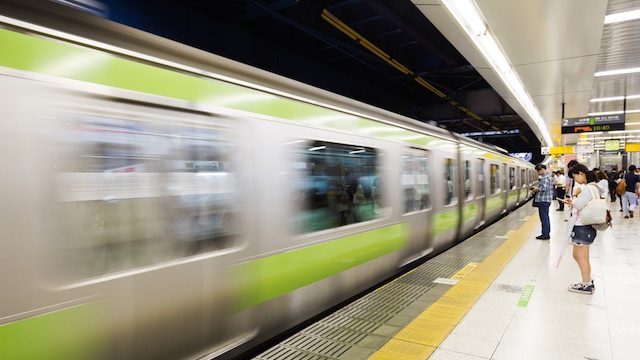SUMMARY
This is AI generated summarization, which may have errors. For context, always refer to the full article.

TOKYO, Japan – Japan is set to build India’s first bullet train, with Tokyo financing the project through an $8 billion loan to New Delhi, a leading Japanese business daily reported Tuesday, December 8.
The Nikkei, which did not cite sources, said the bullet train will link the cities of Mumbai and Ahmedabad and that the two countries will issue a joint statement about the deal on Saturday during Prime Minister Shinzo Abe’s visit to India, where he will meet Prime Minister Narendra Modi.
A deal with India would be the second successful case of Japan exporting its bullet train technology to a foreign market, following a deal with Taiwan in 2007, Japanese officials said.
The report comes after Japan failed to win a high-speed train deal in Indonesia earlier this year, losing out to a Chinese proposal.
Since early this year, China and Japan were locked in a heated contest to build Indonesia’s first high-speed railway. Japan, a top-three investor in Indonesia with huge stakes in the automotive and mining sectors, seemed destined to build the high-speed railway until China muscled in with a counter offer.
The schmoozing intensified in August, ahead of August 31, when Indonesian President Joko Widodo was expected to announce the successful bidder – only for the government to suddenly announce that the project had been shelved, citing cost and feasibility concerns.
At that time, Chief Economics Minister Darmin Nasution, met with the Japanese ambassador to tell him that Indonesia would pursue a medium-speed rail option instead and throw open the bidding process to other competitors.
The decision led to China and Japan to submit new proposals but by end of September, Indonesia abruptly announced it chose China to build the railway. By October 1st, Indonesia again changed its mind saying China’s original bid for a high-speed train has been accepted.
Modi fulfills promise
Two officials from Japan’s trade and transportation ministries refrained from confirming the contents of the Nikkei article, telling AFP only that the Japanese government was making “utmost efforts toward such an agreement”.
Abe, who departs Friday for India, is to tell Modi that Japan will provide one trillion yen ($8.1 billion) worth of loans during the next decade that would finance more than half of the approximately 980 billion Indian rupee cost of the project, the Nikkei said.
The introduction of high-speed links and bullet trains were one of the key campaign promises of Modi, who was elected in May 2014.
India’s vast rail network runs 12,000 trains a day, carrying 23 million people and connecting about 8,000 stations, but has suffered decades of neglect at a time of rapid economic growth during which car ownership has surged and low-cost airlines have mushroomed.
Modi’s government said last year it would open up the railways to foreign investment as they struggle to win back freight traffic lost to roads, coastal shipping and planes.
Last year an Indian passenger train set a new national speed record of 160 kilometres an hour (100 miles an hour) – just half the speed of 320 kilometres an hour that the Japanese “shinkansen” can reach. – Rappler.com
READ MORE:
Add a comment
How does this make you feel?
There are no comments yet. Add your comment to start the conversation.